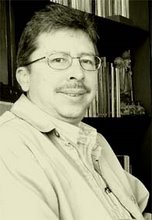Monday, May 14, 2007
The V Conference started formally yesterday, Sunday afternoon, with the inaugural address by the Pope. It was 4:00 p.m. when Benedict XVI entered the meeting hall, located in the basement of the Basilica of Aparecida, which is known as the largest Marian shrine in the world. After the litany and a brief Gregorian chant, the President of CELAM, Francisco Javier Cardinal Errázuriz (from Chile) gave the words of thanks and welcome. He said that the greatest longing of all those present was for our Continent to open “the locks of its existence and of its thirst to the Holy Spirit that fills all with youth, peace and new life in Christ, so that everything that the Father of Heaven planted in this Continent of Hope will bear abundant and surprising fruit…” It was a brief speech, with several references to the Virgin Aparecida and to the story of its miraculous finding. Then we listened to the words of the Pope.
Just out of curiosity I counted the applauses and recorded the lines that caused them. We applauded him eighteen times in total. In the first part of the address he was applauded when he said that “the preferential option for the poor is implicit in the Christological faith in that God that has become poor for us, in order to enrich us with his poverty.” But he was also applauded (and this balanced the tendencies) when he condemned the Marxist system because “wherever it has ruled, it has left behind not just a sad inheritance of economic and ecological destruction, but also a painful destruction of the spirit.” The wide range of topics gave opportunities for everybody to applaud for some reason: the defenders of the family, the promoters of lay participation, the champions of men’s and women’s equality (let’s not say “gender equality”, because Benedict doesn’t like that phrase), those who expect the renewal of the Church, anti-capitalists and anti-Marxists—everyone had their reason to celebrate. Even us, the five evangelical Protestants who were there. We felt at home when he wondered: “How can one actually know Christ in order to follow him and live with him, in order to find life in him and to communicate this life to others, to society and to the world?”, and then he answered this was “through the Word of God.” He then added: “This is why the people need to be educated in reading and meditating the Word of God—let this Word become their food so that, by their own experience, they can see that the words of Jesus are spirit and truth.” How not to applaud!
But applauses are not everything. One day later, I have heard more well-thought expressions. “He left us a map, but didn’t show the route”, remarked a bishop concerned for the work ahead in these three weeks. “We were expecting a more conservative discourse”, said one who was fearing allusions to divorced people, to abortion, euthanasia and other topics of the moral polemics. But—no, he chose a different way this time. He spoke against capitalism, he insisted in the integral development of the human person (remembering Paul VI in his encyclical Populorum progressio), he encouraged social catechesis, he promoted church movements and highlighted the role of priests. There are also some people who, reading between the lines, think they are detecting the internal tensions of a Church that struggles between fear for the uprising of new leftist movements and the relentless growth of “the sects”.
Before he left the room, even though we had been told that he would only greet the Cardinals, the list was expanded to include some laypeople, the representative of the Jewish community, the Orthodox bishop, some priests, and our Ofelia Ortega (from Cuba), a Presbyterian woman minister and President of the World Council of Churches. At that time, I applauded even more.
The full text of the address can be found at: http://www.celam.info/content/view/242/1/
Harold



No hay comentarios:
Publicar un comentario